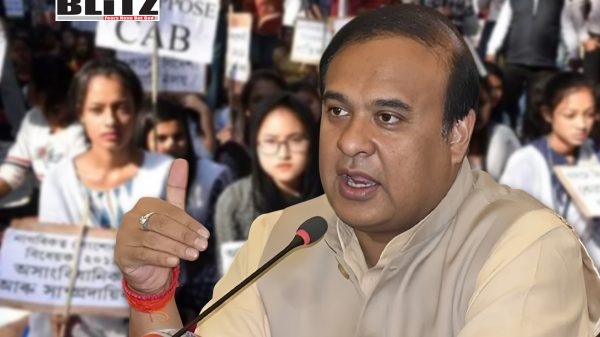Assam revives a 1950 migration law, prompting fresh debate over borders, belonging and state power
- Update Time : Saturday, November 22, 2025

In a development that has drawn both attention and concern, authorities in the Indian state of Assam have issued orders instructing five people to leave the country within 24 hours. All five — four women and one man — had previously been declared “foreigners” by a legal tribunal earlier this year. The directive represents the first publicly known use of the Immigrants (Expulsion from Assam) Act of 1950, a law passed in the aftermath of India’s Partition and long considered obsolete.
Police officials in Sonitpur district, where the orders were issued, say the individuals are currently untraceable. Local residents claim the five have not lived in the area for more than a decade. The gap between legal action and the ground reality has raised questions about enforcement, due process and the broader implications of reviving such an old piece of legislation.
A law born in the chaos of Partition
The Immigrants (Expulsion from Assam) Act was created just three years after India gained independence in 1947, at a time when the subcontinent was grappling with enormous population movements triggered by the traumatic division of India and Pakistan. Assam, which borders present-day Bangladesh, became a key site of concern as waves of people crossed borders seeking safety, land and livelihood.
Under the law, the Indian government gave special authority to both central and state officials in Assam to order the expulsion of individuals whose presence was considered harmful to public interest, particularly if they were found to have entered from territories outside India. At the same time, the law attempted to distinguish between “refugees” fleeing violence and those seen as “migrants” who had crossed the border for other reasons.
Despite its sharp tone and wide powers, the Act was barely implemented. Within months of its introduction, India’s first Prime Minister, Jawaharlal Nehru, instructed Assam’s leadership to halt its use, following growing concerns about its impact on minority communities and its implications for regional stability. Deteriorating communal relations in Assam and a landmark peace agreement between India and Pakistan in 1950 forced the government to step back.
Over the decades, the law faded into legal obscurity, replaced by newer frameworks such as special tribunals set up to determine an individual’s citizenship status and by political agreements intended to resolve Assam’s long-running concerns around immigration.
Why is it being used again now?
Assam’s current government, led by Chief Minister Himanta Biswa Sarma, has spent months advocating for the revival of the 1950 Act. In June this year, Sarma stated that district officials would be empowered to use the law to remove individuals they “prima facie” consider to be foreigners, bypassing the more time-consuming tribunal process in certain cases.
Supporters of the move argue that illegal immigration places social, economic and environmental pressure on a state that already struggles with poverty, land scarcity and ethnic tensions. They also say existing legal mechanisms have failed to address the scale of the issue.
However, critics warn that reviving a colonial-era law brings with it serious risks. Human rights groups and legal experts fear that the process could sidestep due process protections, leading to wrongful expulsions, statelessness and humanitarian crises — especially for poor and marginalised families who may lack documentation or legal support.
The situation is further complicated by the reality that many people living in Assam today are descendants of migrants who arrived decades ago. In many cases, communities have lived, worked and paid taxes in the region for generations. The idea of “foreignness” is not merely legal — it is deeply tied to history, identity, language and politics.
A wider question for modern democracies
Assam’s decision to dust off an old law raises broader, global questions that extend far beyond India’s borders. Around the world, governments are struggling to balance national security, demographic change and humanitarian responsibilities. From Europe to the United States to Southeast Asia, debates over migration, refugees and border control have become among the most divisive political issues of our time.
By revisiting a law born in the instability of the 20th century, Assam is testing how modern democracies can — or should — address migration in the 21st. The outcome of this experiment will not only affect the lives of thousands in one corner of India, but may also offer a cautionary lesson about the dangers — and temptations — of looking to the past for solutions to present-day challenges.
Whether the 1950 Act becomes a powerful new tool or a deeply contested legal relic remains to be seen. What is clear, however, is that the revival of the Immigrants (Expulsion from Assam) Act has reopened an old and painful debate — about who belongs, who decides, and what it truly means to call a place home.










